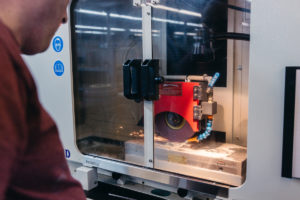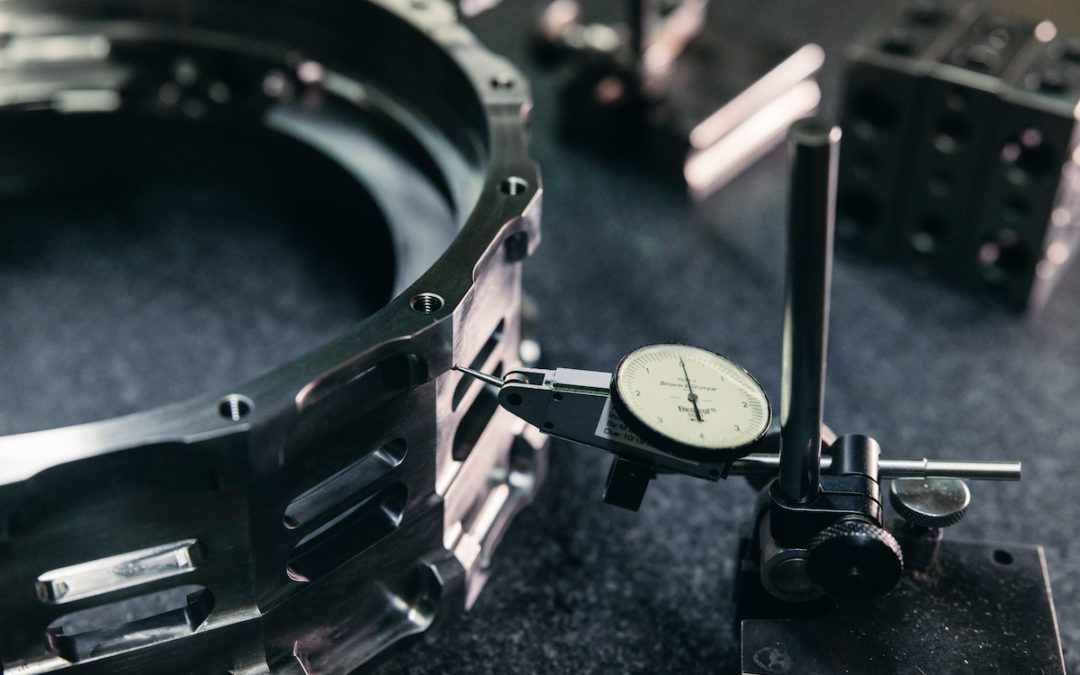Domestic manufacturing is on the rise, and with economic uncertainty looming it is more important than ever to find ways to reduce manufacturing costs while still producing high-quality products. This feat requires optimization throughout the entire manufacturing process, and you may be surprised to learn that precision grinding could play a big role in achieving these cost savings.
1. Improved dimensional accuracy
One of the main benefits of precision grinding is that it can improve the dimensional accuracy of your parts and components. This means that you will be able to produce parts that are more consistent with each other and work more efficiently. Dimensional accuracy is especially important to industries like aerospace or laboratory equipment manufacturing, where even a small deviation can cause potentially dangerous problems. In addition, when your parts are more accurate, they will require less rework, which can save you money.
2. Reduced scrap and material waste
When a machine house tries to imitate precision grinding techniques with conventional grinding methods, they often end up with a much higher rate of material waste. This wasted material must then be disposed of, adding unnecessary cost to the manufacturing process. In contrast, precision grinding is a much more efficient process that leaves very little material waste, reduces costs, and helps to conserve valuable resources.
3. Faster cycle times
In many cases, precision grinding can also lead to faster cycle times. This is because when parts are ground more accurately, they will often require less time in subsequent operations such as inspection and assembly. This can lead to a decrease in overall production time, which can save you money. Additionally, when cycle times are reduced, you may also be able to increase your production capacity, which can further improve your bottom line.
4. Increased operational life
 Precision grinding can also help extend the life of your end assembly. This is because when parts are ground more accurately, there is less stress on the mating components, which can lead to increased equipment life. In many cases, the increased assembly life that results from precision grinding can save you money by reducing maintenance costs. Additionally, precision grinding can often improve the surface finish of your parts and reduce premature tool wear.
Precision grinding can also help extend the life of your end assembly. This is because when parts are ground more accurately, there is less stress on the mating components, which can lead to increased equipment life. In many cases, the increased assembly life that results from precision grinding can save you money by reducing maintenance costs. Additionally, precision grinding can often improve the surface finish of your parts and reduce premature tool wear.
5. A safer working environment and a safer product
Finally, it is important to consider the safety of both your employees and your product when determining whether or not to invest in precision grinding. Attempting to execute precision grinding techniques without the proper equipment or training can put your workers and your parts at risk.
In contrast, working with a reputable precision grinding company ensures that the right safety precautions will be taken by experienced precision grinding specialists. Additionally, when precision grinding is performed correctly, it can actually improve the safety of your product by ensuring that critical components will perform predictably, reliably, and consistently.
When it comes to reducing manufacturing costs, precision grinding should be considered an essential part of the process. By improving dimensional accuracy, smoothing surface finishes, reducing cycle times, and extending tool life, precision grinding can help you save money and improve the quality of your products. In addition, precision grinding can also lead to increased safety in your workplace.
Are you looking for ways to improve your manufacturing operation? Ask the experts at Duval Precision Grinding today!

